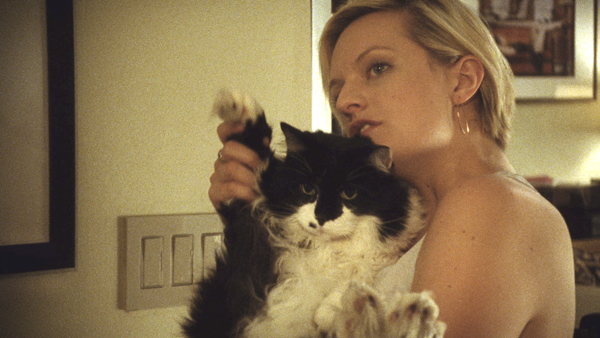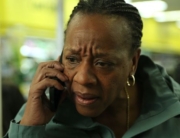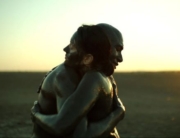The image of the tortured writer in pop culture—think J. D. Salinger or Philip Roth—would lead us to believe that it’s naive to envision a productive and well-adjusted artist, and this film positively revels in this trope. The title character seems determined to join the ranks of misanthropic authors before him—if not in talent then in maladjustment.
Thirtysomething New Yorker Philip (Jason Schwartzman) has only two books under his belt, but he’s well ahead of the curve when it comes to alienating friends, loved ones, and even the odd groupie. The first 20 minutes of this portrait-in-angst see the angry young man reacting to the impending publication of his second novel not with pleasure but defiance. He obstinately turns up his nose at the idea of promoting his book (interviews? the horror!) and brings a signed advanced copy of his novel to an ex-girlfriend to berate her for not believing in him. He even decides to mete out punishment to a coltishly awkward young twentysomething with a crush, cutting her down to size for not giving him the time of day after his first novel came out. This unpleasantly barbed scene allows Philip to establish himself as a jerk even more effectively than had he kicked a puppy.
Philip is cohabitating with rising photographer Ashley (a fresh-faced, dewy Elisabeth Moss), and it’s obvious that it’s only a matter of time before the relationship goes belly-up. It’s hard not to cringe for Ashley as she affectionately dotes on dour Philip—the phrase “she’s out of his league” seems tailor made for the couple. The cracks in the relationship appear when the young writer meets Ike Zimmerman (Jonathan Pryce), a well-respected and once-prolific novelist who begins to mentor Philip, inviting him to his country house to write in solitude and even setting him up with a job teaching writing at the local college. As Philip abruptly takes off, Ashley wrestles with feelings of abandonment and her singlehood in sequences that allow Moss to shine but that border on dull (her adoption of an amusingly aloof shelter cat).
Ike’s a role model to Philip in more than just the writing life: he’s an example of the effects of pure self-indulgence. Ike experiences the fallout of a lifetime alienating family and loved ones through his fractured relationship with daughter Melanie (an alluringly sullen Krysten Ritter). Meanwhile, Philip stumbles through a semester in purgatory at the college—where both his own delightful persona and jealous professor Yvette (Joséphine de La Baum) turn the rest of the faculty against him.
The—all-too—shaky camera gives the work a rough, unfinished feel, appropriate for a film about a sophomoric young writer. (The time Philip devotes to the written word is minimal compared with the energy he spends on himself.) Indeed, that the filmmakers opt for a narrative that often—as in real life—stumbles or plods without more typical plot devices (such as a romance between Ritter and Schwartzman) brings it closer to the type of authenticity Philip is likely aiming for. The intense close-up shots, coupled with hilariously derisive narration from Eric Bogosian, add a sense of detachment from the characters. These are not people with whom audiences will identify but figures to be scrutinized or—in the case of Philip—mocked. Even as the film soldiers on, there’s little redeeming about him.
While Schwartzman manages the unenviable task of imbuing the tortured Philip with moments of vulnerability that make him bearable—scenes of him eating alone in his apartment—it’s not clear what the payoff is. Viewers will, especially in early on, readily laugh at the self-important, tortured artist, yet when the mirth wears off, we’re left only with a deeply unhappy protagonist—and no investment in looking deeper. (It isn’t apparent when the film is set, but the term hipster certainly applies.) It’s an incredibly realistic portrait of a difficult, churlish young man—surely everyone within a five-mile radius of Brooklyn has met a Philip, or five—though not one most viewers will want to look at too deeply.

















Leave A Comment